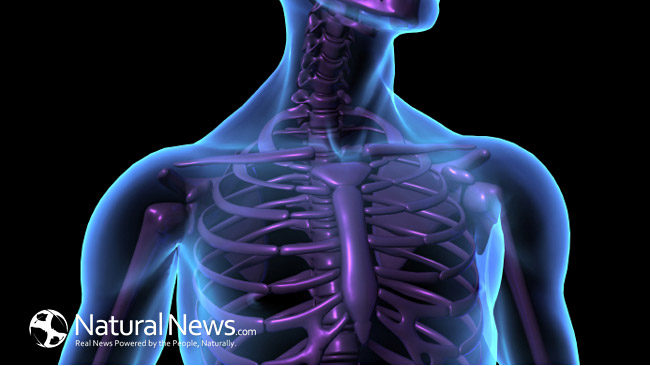Bone density is something we take for granted until its too late. Even osteoporosis sufferers are often surprised by their diagnosis… and by the time they start feeling symptoms they have already lost a significant portion of their bone density.
Here is a list of seven things you should do build and maintain your bone density and avoid the fate of so many slouched, uncomfortable, fatigued bone loss sufferers who have failed to heed this advice:
1.) BUILD STRENGTH
A study with over 4000 participants found that of all factors, muscle strength had the largest correlation to bone density. This is great news because when you work out to build muscle, you actually help build up your bones. The best exercises for muscle strength will always be things like squats and barbell presses, but if you haven’t worked out in a while, even just grabbing some light dumbbells and going for a walk is a great way to start.
2.) AVOID PRESCRIPTION DRUGS
There is an especially vicious irony here. The drugs that are often prescribed for bone loss and osteoporosis, bisphosphonates, are actually terrible for your bones. By preventing the bone from sloughing off old, weak bone cells, these drugs superficially increase your “bone density”, but your bones are actually weaker and put you more at risk for fractures, especially debilitating hip and femur fractures. Stay away!
3.) EAT PROTEIN
There is a myth abound the health world that protein-rich foods are “acidic” and should be avoided as acid leeches bone. This is nonsense as your kidneys are very efficient at controlling the pH level of your blood. Now, if you have a kidney problem, you should be careful about too much protein. Otherwise, eat up, you’ll need it to help build those muscles!
4.) CONTROL INFLAMMATION
Inflammation activates osteoclasts, the cells that leak bone, and deactivates osteoblasts, the cells that build bone. Most bone loss is a result of inflammation, even chronic low-level inflammation can turn into a huge problem. Unfortunately, the drugs that doctors often prescribe for inflammation, steroids like prednisone, actually make bone loss worse. The Harder Bones nutritional supplement is designed to curtail inflammation without the damaging effects of steroids.
5.) EAT FATS
The fat-is-bad myth was spawned in the 1980s for almost no apparent reason at all. Fats are good. Saturated Fats and Cholesterol are essentially for building sex hormones, things like testosterone and estrogen, which are GREAT for bone density. In fact, bone loss often becomes a problem for women only when their estrogen levels crash after menopause, proving its importance.
6.) STOP EATING SUGAR
Sure, an obvious one, right? Then why haven’t you done it yet? High blood sugar levels increase the inflammation that leads to bone leaking, not to mention weight gain is bad for your joints. So put down the candy, pies and Pop-Tarts and focus on nutrient and protein-rich foods without added sugars. Bone appetit!
7.) GET OUTSIDE
‘Tis the season for natural sunlight. So everyone knows by now that Vitamin D assists with calcium absorption, which is obviously great for your bone density. But at this point, nobody has really knows if getting your Vitamin D from natural sun has any benefit you can’t get from taking a supplement. I think there might be, if only because the sun produces a feeling of well-being. So get outside, take in some of those sweet sun rays. You’ll thank me later.
Sources for this article include:
http://www.ncbi.nlm.nih.gov/pubmed
About the author: Chris Huntingon has been a bone health expert for over ten years. He has worked with Olympic athletes and elderly osteoporosis sufferers, as well as preventive care patients seeking to improve their bone density. He blogs at Harderbones.com.





